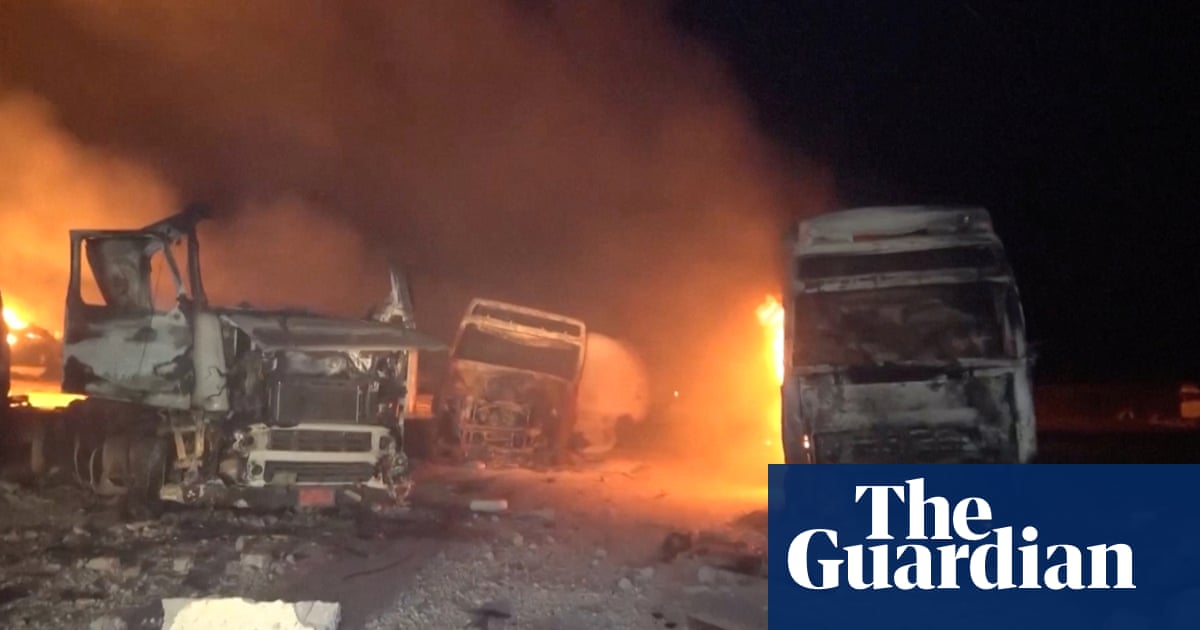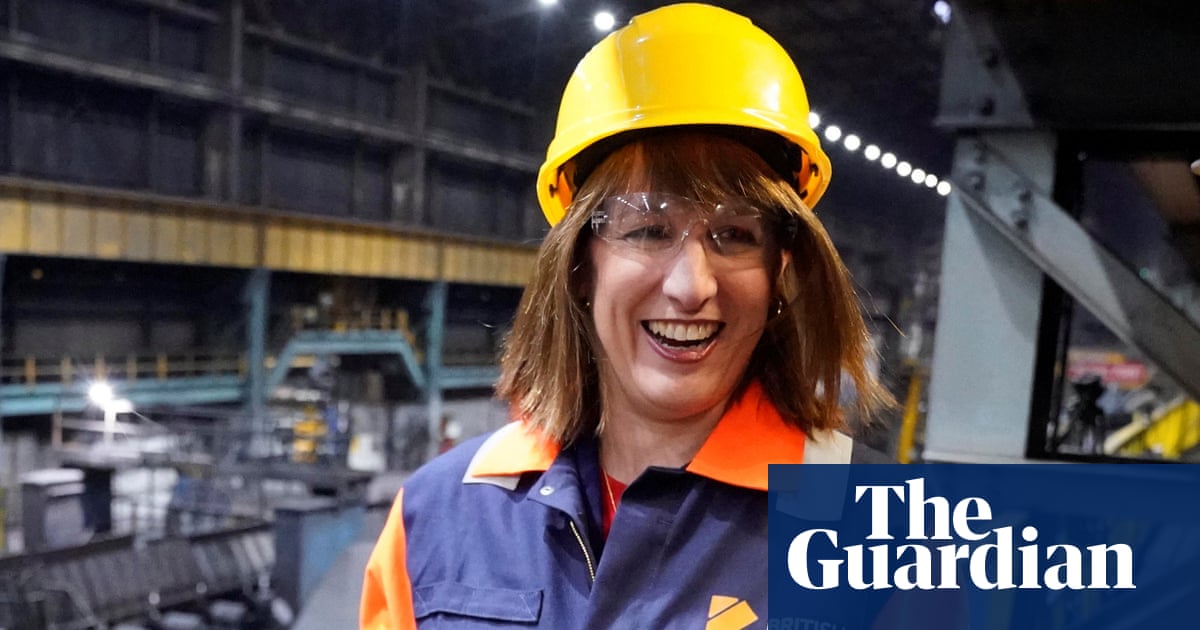Will British Steel be nationalised?

Rowena Mason
When the legislation is passed, Jonathan Reynolds will be able to order the company to buy the raw materials to keep two blast furnaces going at the plant and the taxpayer will take on the costs of the purchases. The company’s owner, Jingye, has said it is losing about £700,000 a day.
The issue of nationalisation will be dealt with separately and is not certain to happen, but senior sources said it was the likely outcome and the government would look at potential private sector partners for a transfer of ownership and co-investment.
The company declined to comment and it remains unclear how Jingye will respond to being directed by the UK government.
Government sources said generous offers had been made to the Chinese company that any rational actor would have accepted, and that the UK was taking action to keep the furnaces going in order to continue talks about the next steps. Once they had been allowed to stop, the furnaces would be impossible to restart.
Key events Show key events only Please turn on JavaScript to use this feature
Analysis: British Steel facing a crisis within a crisis

Jasper Jolly
Blast furnaces have been making steel in Britain for 300 years, ever since they helped start the Industrial Revolution. This weekend, parliament will sit for the first Saturday in decades as it tries to keep the last two furnaces running for a bit longer.
Keir Starmer has recalled MPs to discuss emergency powers to direct steel companies, including British Steel’s Scunthorpe steelworks, to “preserve capability and ensure public safety”. The move would be short of nationalisation, but it would give the government more influence on the steel industry than at any point since Margaret Thatcher.
The government is scrambling to save Scunthorpe after its Chinese owner, Jingye Steel Group, last month said it was considering closing it, with the likely loss of 2,700 jobs. Starmer and the business secretary, Jonathan Reynolds, hope to keep the plant running for the next few weeks while they work out the longer-term plan, with nationalisation one option.
British Steel is facing a crisis within a crisis: in the short term – the next week or so – it needs materials, including iron pellets and coking coal, or else it faces the prospect of the furnaces cooling beyond easy or affordable recovery. Customers would flee, making job losses inevitable.
People with knowledge of this week’s talks between the UK government and Jingye said it appeared that the government had run out of patience with the Chinese company’s negotiating. The government had offered to buy the raw materials to keep the blast furnaces running in the short term but that offer was not taken up. Parliament may be able to avert the short-term crisis on Saturday.
What have opposition parties said about today's debate?
Some opposition parties were also furious that other industrial plants in trouble had not been given the same treatment from the government. Plaid Cymru said “the people of Wales would not forget” that the steel plant at Port Talbot was allowed to close its blast furnaces and convert to electric arc production, while the SNP highlighted the different treatment for Grangemouth – Scotland’s only oil refinery, which could close. Government sources said those plants were facing different situations.
The Conservative leader, Kemi Badenoch, said the government had “bungled” the negotiations with British Steel.
“They must have seen this coming for a while,” she said. “Instead of addressing it earlier in the week when parliament was sitting, their incompetence has led to a last-minute recall of parliament.”
The Green Party has said it will support any bid to nationalise British Steel.
Green MP Ellie Chowns said nationalisation was “the only sure way to secure this strategically important sector so vital to national security and British jobs”.

Rowena Mason
The last time parliament was recalled during recess was in 2021, when Afghanistan had to be evacuated during the Taliban takeover. It is also the first recall of parliament on a Saturday since 1982.
One MP said the move was “going down extremely badly” with colleagues who had been given no warning about the need to return to Westminster, when it had been known for weeks that British Steel was in trouble.
Speaking on Friday, Starmer said the “future of British steel hangs in the balance” and he would not stand by while the last blast furnaces in the UK were closed, shutting an essential industry. He said:
We will pass emergency legislation in one day to give the Business Secretary the powers to do everything possible to stop the closure of these blast furnaces.
A No 10 spokesperson said:
The prime minister has been clear, his government will always act in the national interest. All actions we take are in the name of British industry, British jobs and for British workers.
Tomorrow (Saturday), parliament will be recalled to debate the steel industry (special measures) bill. The bill provides the government with the power to direct steel companies in England, which we will use to protect the Scunthorpe site. It enables the UK government to preserve capability and ensure public safety. It also ensures all options remain viable for the future of the plant and the livelihoods it supports.
We have been negotiating with British Steel’s owners in good faith ever since coming to office. We have always been clear there is a bright future for steel in the UK. All options remain on the table.
Will British Steel be nationalised?

Rowena Mason
When the legislation is passed, Jonathan Reynolds will be able to order the company to buy the raw materials to keep two blast furnaces going at the plant and the taxpayer will take on the costs of the purchases. The company’s owner, Jingye, has said it is losing about £700,000 a day.
The issue of nationalisation will be dealt with separately and is not certain to happen, but senior sources said it was the likely outcome and the government would look at potential private sector partners for a transfer of ownership and co-investment.
The company declined to comment and it remains unclear how Jingye will respond to being directed by the UK government.
Government sources said generous offers had been made to the Chinese company that any rational actor would have accepted, and that the UK was taking action to keep the furnaces going in order to continue talks about the next steps. Once they had been allowed to stop, the furnaces would be impossible to restart.
MPs to debate emergency legislation to save British Steel
Good morning and welcome to a slightly unusual Saturday edition of our politics live blog.
Keir Starmer is stepping in to seize control of British Steel to stop its Chinese owner shutting the Scunthorpe plant in an unprecedented move that paves the way for likely nationalisation.
The prime minister was granted a recall of parliament on Saturday, with MPs set to debate emergency laws that will give the business secretary, Jonathan Reynolds, the power to direct the company.
The Commons will sit at 11am, with MPs called back from Easter recess to discuss putting the assets under public control. The government will aim to get emergency legislation through the Commons and Lords in one day of sitting.
We’ll cover the debate live while also bringing you analysis and other political updates throughout the day.

 6 days ago
29
6 days ago
29













































